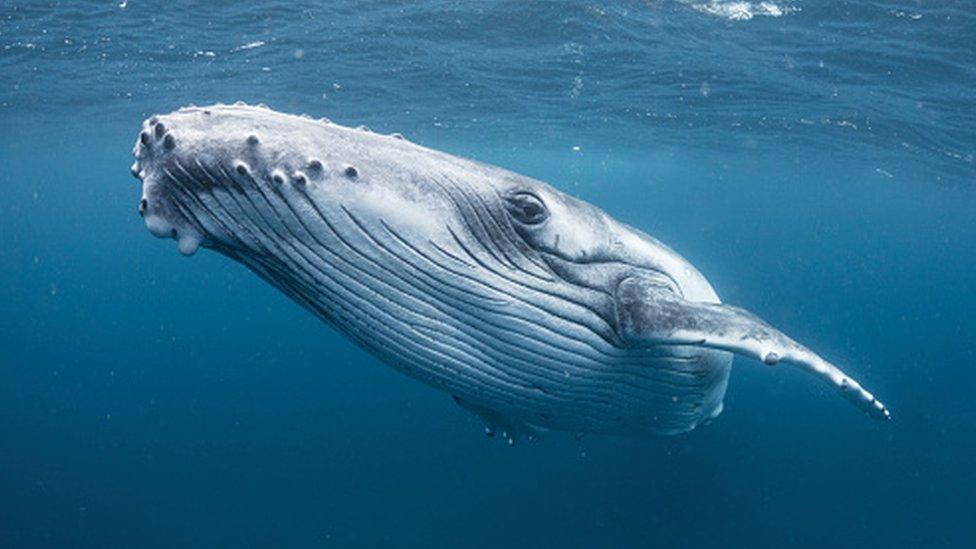Scientists sign letter to protect whales and dolphins from extinction
- Published
- comments

Whales, dolphins and porpoises are at risk of extinction if more is not done to protect them, according to experts.
More than 350 scientists and conservationists from 40 countries have come together to sign a letter calling for better protection for the creatures.
They say more than half of all species of whale, dolphin and porpoise are of conservation concern, with two species on the "knife-edge" of extinction.
Their letter suggests that a lack of action by governments, over pollution and over-fishing means that many species may be declared extinct within our lifetimes.
"Let this be a historic moment when realising that whales are in danger sparks a powerful wave of action from everyone: regulators, scientists, politicians and the public to save our oceans," said Mark Simmonds, a senior marine scientist from the Humane Society International, who helped to organise the letter.
This is not the first time whales have been threatened by extinction from humans.
After years of campaigning by animal rights activists, a global agreement was signed in 1986 to end commercial whaling.
Commercial whaling is the process of hunting and killing whales, to sell things like their meat or blubber for money.
It became very clear that this process had almost pushed many whale species into extinction.
Only a few hundred North Atlantic right whales remain
Since then lots of whale species have recovered, but now face new threats from human actions, including plastic pollution, loss of habitat and prey, climate change and being hit by ships.
However, one of the biggest threats is becoming accidently captured in fishing equipment and nets, which sadly kills an around 300,000 whales, dolphins and porpoises a year.
Right now there are only a few hundred left of the North Atlantic right whale, and a species of porpoise called the vaquita may be down to the last 10 of its kind.
There are 90 living species of whales, dolphins and porpoises in the world.
The scientists who signed the letter say that the trend of acting "too little, too late" must end.
Dr Susan Lieberman of the Wildlife Conservation Society said: "It is critical that governments develop, fund, and implement additional needed actions to better protect and save these iconic species."
- Published10 September 2020
- Published18 September 2020
- Published23 September 2019
